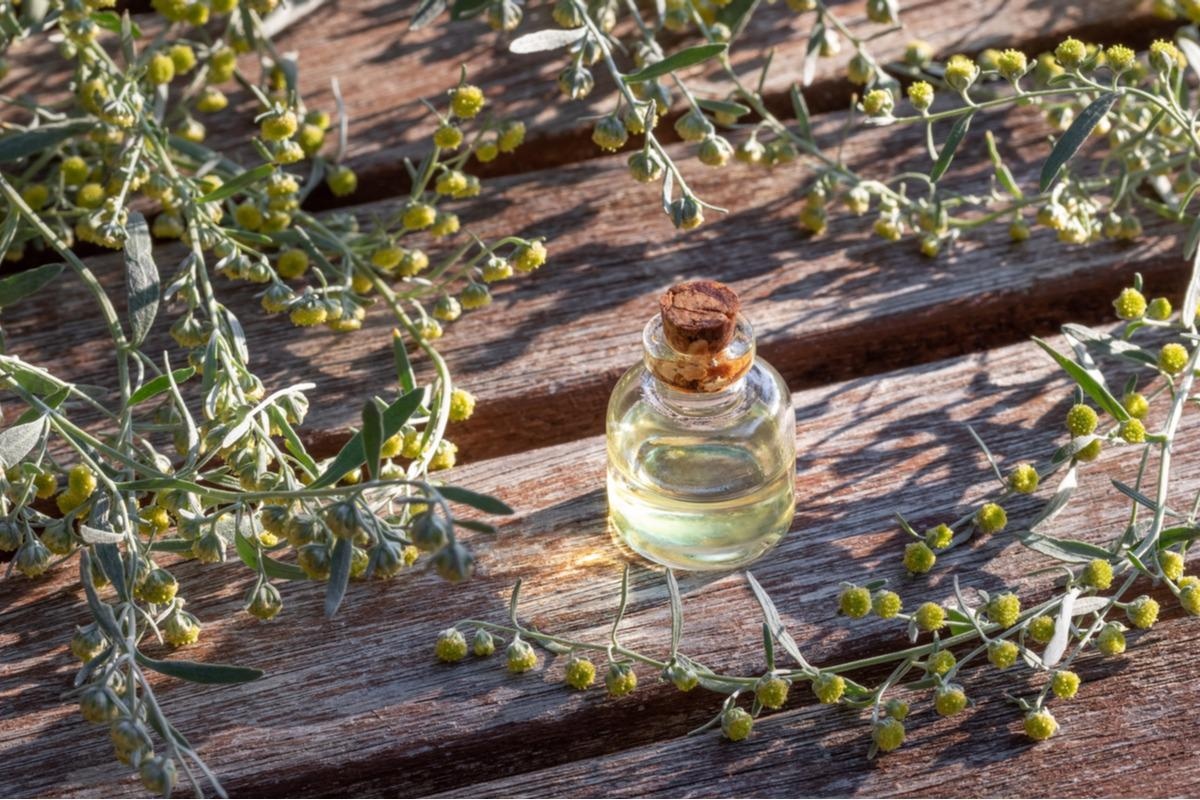In a recent study published in Molecules, researchers assessed the effectiveness of artemisinin-based antimalarials in the management of coronavirus disease 2019 (COVID-19).

Study: Artemisia Extracts and Artemisinin-Based Antimalarials for COVID-19 Management: Could These Be Effective Antivirals for COVID-19 Treatment? Image Credit: Madeleine Steinbach/Shutterstock
Severe acute respiratory syndrome coronavirus 2 (SARS-CoV-2) vaccines have played a critical role in curbing the transmission of COVID-19. While there have been several cases of breakthrough COVID-19 infections, vaccinated patients have a remarkably lower chance of being hospitalized due to SARS-CoV-2 complications. However, there is still an urgent need for therapeutic options to treat SARS-CoV-2-infected individuals.
Impact of Artemisia extracts on COVID-19
In the present study, researchers summarized the significance of the antiviral activity exhibited by artemisinins and two Artemisia species, namely A. afra and A. annua, against COVID-19.
In April 2020, the Malagasy Institute for Applied Research (IMRA) developed a herbal tea based on Artemisia for COVID-19 treatment. This herbal tea contained 62% A. annua along with a mixture of Malagasy medicinal plants which were used as bronchial fluidizers and antiseptics. However, widespread unregulated usage of such a remedy raised fears regarding the possibility that malarial parasites could develop artemisinin resistance. This could further result in reduced effectiveness of accessible medicines and potential resistance development by P. falciparum to artemisinin-based combination therapies (ACTs).
A study also noted that the ethanol extract of leaves of A. annua exhibited antiviral activity, which considerably increased when the extract was mixed with coffee. These extracts were first added to VeroE6 cells either 1.5 hours before infection (pretreatment (pt)) or one hour after infection (treatment (t)) and were subsequently incubated with extracts. The 50% effective concentration (EC50) values were 173 µg/mL before and 142 µg/mL after infection for the ethanolic extract, 390 µg/mL before and 260 µg/mL after infection for the aqueous extract, and 176 µg/mL before and 128 µg/mL after infection for the ethanolic extract and coffee.
Furthermore, cell viability assays of the A. annua extract showed median cytotoxic concentrations (CC50) of 1044 µg/mL for the ethanolic extract, 632 µg/mL for the coffee ethanolic extract), and 2721 µg/mL for the aqueous extract. Overall, the use of A. annua leaves can be used as a potentially therapeutic and inexpensive method for COVID-19 treatment.
Another study tested hot water extract derived from A. annua leaves against SARS-CoV-2 variants B1.1.7 and B1.351. The study observed IC50 values that corresponded to less than 12 µM of artemisinin. Moreover, the antiviral activity of the extracts declined in an inversely proportional manner with respect to artemisinin content. The team noted that the A. annua contained compounds that inhibited inflammation as well as the formation of fibrosis, which were reported to affect COVID-19 patients.
The team also reported that treatment with aqueous and ethanolic extracts of A. annua, artemisinin, artemether, and artesunate inhibited SARS-CoV-2 infection of human hepatoma Huh7.5 cells, VeroE6 cells, as well as human lung cancer A549-angiotensin-converting enzyme-2 (ACE-2) cells. Hot water extracts of A. annua were also noted to be active against SARS-CoV-2 Alpha, Beta, Gamma, Delta, and Kappa variants. Moreover, cultivars of A. annua having the lowest concentrations of artemisinin were the most effective against the Gamma, Delta, and Kappa variants, thus indicating the effectiveness of the extracts against the virus.
Artemisinin in COVID-19 management
Assessment of in vitro efficiency of artemisinin-based therapy against SARS-CoV-2 revealed that treatment with artesunate had the strongest anti-SARS-CoV-2 activity, followed by artemether, A. annua extracts, and artemisinin. The study also showed that artesunate attacked SARS-CoV-2 at the post-entry level.
A. annua was also reported to stimulate adaptive immunity via the generation of CD4 and CD8 lymphocytes which are responsible for antibody production to target SARS-CoV-2 as well as the downregulation of cytokine production. Artemisinin and its derivatives also regulated several immune cells such as monocytes, macrophages, T cells, and dendritic cells to prevent the release of proinflammatory cytokines and the subsequent cytokine storm outbreak.
Artemisinin-based combination therapies (ACTs) against COVID-19
A study observed that artesunate-mefloquine displayed high anti-SARS-CoV-2 activity with approximately 72.1 ± 18.3% inhibition. Additionally, other ACTs such as artesunate-amodiaquine, artesunate-pyronaridine, artemether-lumefantrine, and dihydroartemisinin-piperaquine also inhibited SARS-CoV-2 by 27.1 to 34.1%. This indicated that ACT drugs could be effectively used for COVID-19 treatment.
Artesunate was also found to inhibit the production of interleukin-1B (IL-1B), IL-6, and IL-8. Since high IL-6 levels in COVID-19 patients have been attributed to the cytokine release syndrome, controlling the levels of IL-6 could potentially reduce the severity of COVID-19.
Overall, the study revealed that A. annua, and artemisinin and its derivatives such as artemether and artesunate could potentially inhibit SARS-CoV-2. The researchers believe that Artemisia-based treatment options could be used to boost immunity and improve tolerance against viral infections such as COVID-19.
- Agrawal, P.K.; Agrawal, C.; Blunden, G. (2022). Artemisia Extracts and Artemisinin-Based Antimalarials for COVID-19 Management: Could These Be Effective Antivirals for COVID-19 Treatment? Molecules. doi: https://doi.org/10.3390/molecules27123828 https://www.mdpi.com/1420-3049/27/12/3828
Posted in: Medical Science News | Medical Research News | Disease/Infection News
Tags: Angiotensin, Antibody, Antiseptics, Artemisinin, Cancer, CD4, Cell, Coffee, Coronavirus, Coronavirus Disease COVID-19, covid-19, Cytokine, Cytokines, Dihydroartemisinin, Drugs, Enzyme, Ethanol, Fibrosis, Herbal Tea, immunity, in vitro, Inflammation, Interleukin, Lung Cancer, Mefloquine, Piperaquine, Research, Respiratory, SARS, SARS-CoV-2, Severe Acute Respiratory, Severe Acute Respiratory Syndrome, Syndrome, Tea, Virus

Written by
Bhavana Kunkalikar
Bhavana Kunkalikar is a medical writer based in Goa, India. Her academic background is in Pharmaceutical sciences and she holds a Bachelor's degree in Pharmacy. Her educational background allowed her to foster an interest in anatomical and physiological sciences. Her college project work based on ‘The manifestations and causes of sickle cell anemia’ formed the stepping stone to a life-long fascination with human pathophysiology.
Source: Read Full Article
